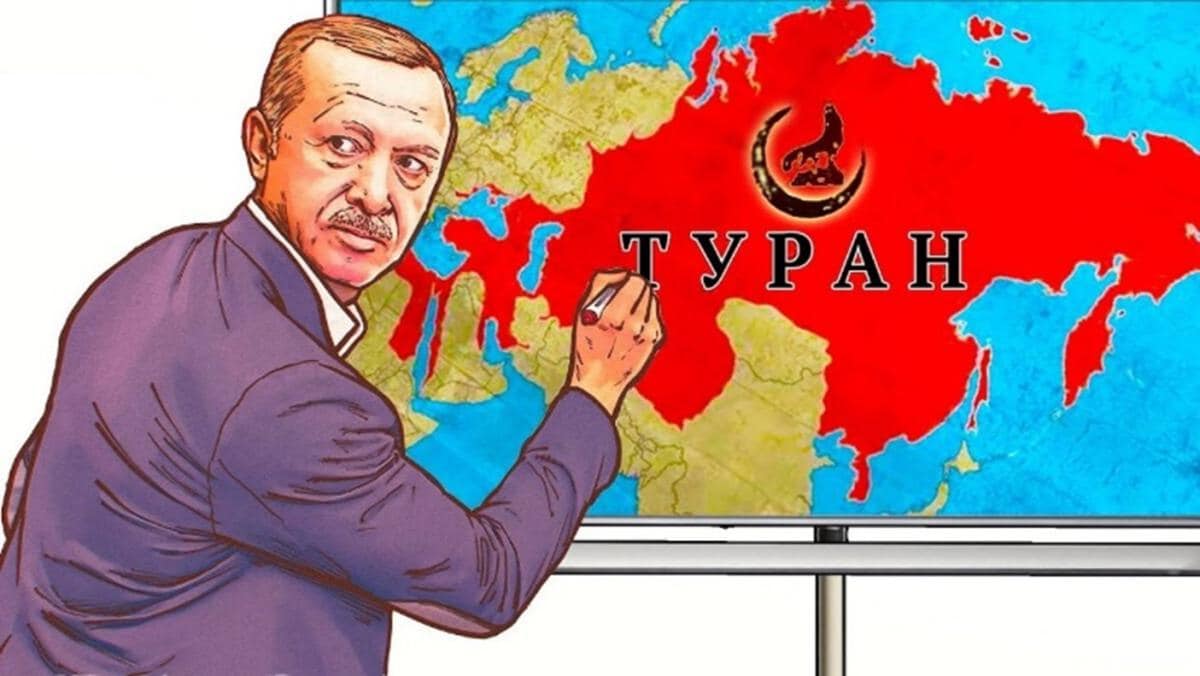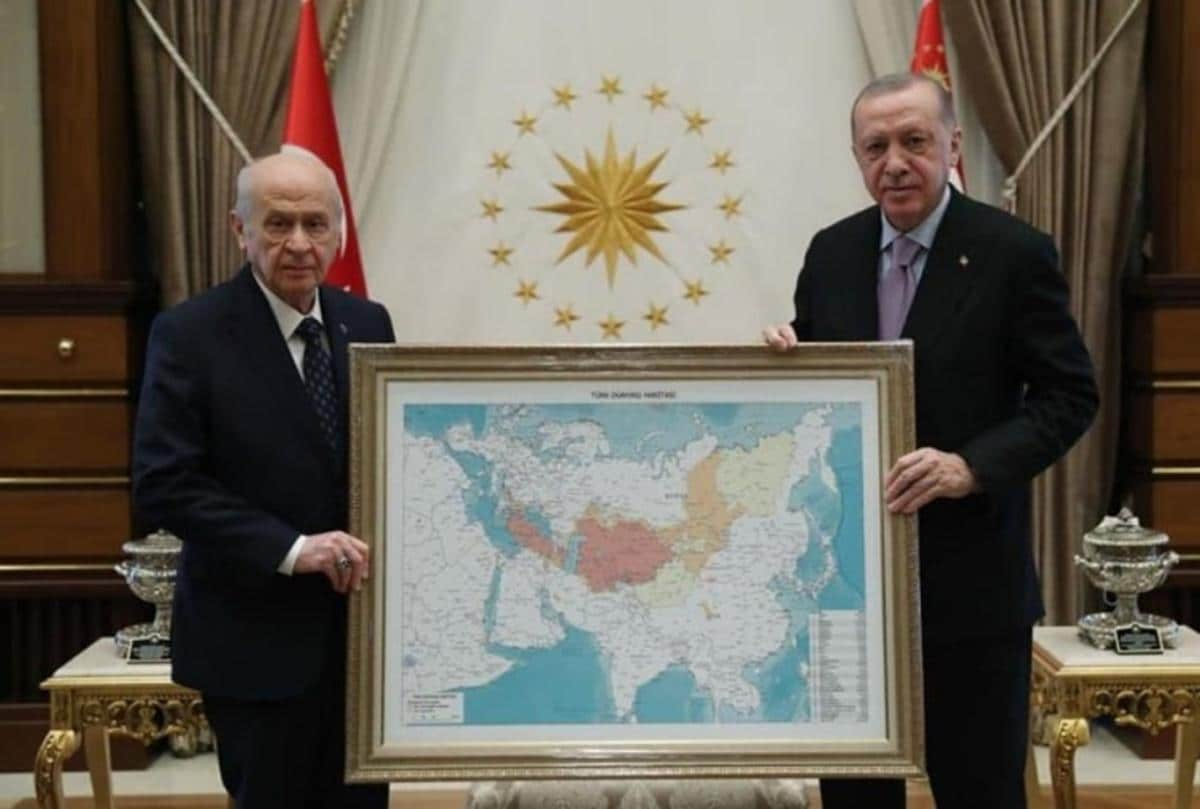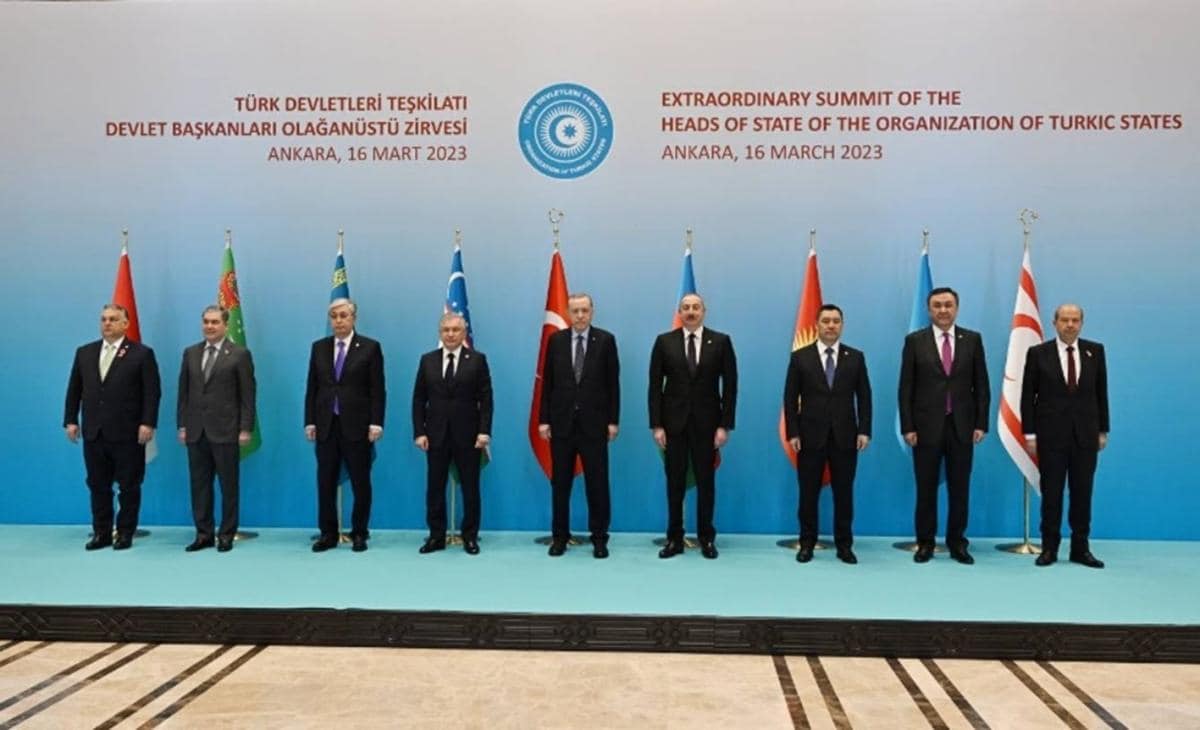An article published by the Russian news agency IA Novorossiya opposed Turkey's concept of the "Grand Turan" – a unified "map of the Turkic World." This concept is rejected in Russia, since it also includes the territories of Russian regions where the Turkic-speaking population also resides. The article stressed that Turkey's "concept of 'Grand Turan' is hostile to the Russian World."

(Source: Asia24.media)
Below are excerpts of the article published by the Russian News Agency "IA Novorossiya:"[1]
"In early October, a meeting of cartographers from Turkic countries who are compiling a map of the 'Grand Turan' took place in Ankara. The [issue of the] territories included in it [the map] and why this event has an anti-Russian 'flavor"'[are covered] in the article by Novorossiya.
"Cartographers from the Turkic-speaking countries created a unified map to fill 'important gaps that hinder cooperation between states in humanitarian spheres.' However, in fact, we are witnessing an attempt to determine the sphere of influence of Turkey, which is trying to play the pan-Turkic card in its foreign policy.
"The roots of this initiative can be traced to the head of the Turkish 'Nationalist Action Party,'[2] Devlet Bahçeli. [In 2021,] the head of the nationalists compiled and presented to the president of the [Turkish] republic the map of the 'Grand Turan,' on which the countries and territories [populated by] all of Turkic-speaking peoples were marked.
"The 'Grand Turan' is a pan-Turkic concept associated with the 'Turkic Khaganate' – i.e. the country of all Turkic peoples from Central Asia who settled in different parts of the continent. Turkish nationalists have taken this project as their 'icon' and a pretext for uniting the Turks around Ankara.

In 2021, Devlet Bahceli, presented the "Turkic World" map to Turkish President Recep Tayyip Erdogan.
'The Establishment Of The Turkic World Is Possible Only On The Ruins Of The Russian World'
"The concept of 'Grand Turan' is hostile to the Russian world [concept]. In the map presented [by Bahceli] to Erdogan, Turkey's sphere of influence includes Yakutia, Kuban, the entire Povolzhye [Volga region], half of the Urals, all of Central Asia, and a good part of Siberia.[3] In a nutshell, [Grand Turan includes] all the territories where Turkic-speaking peoples reside. Erdogan sees them as 'his own' [peoples].
"This map is an official document of the 'Organization of Turkic States,' which serves the objectives of Turkish expansion. Political expert Mikhail Alexandrov elaborates:
"'The Turks, defeated more than once in the Russo-Turkish wars,[4] wanted to regain what is "theirs." To this end, they have created international structures (the same Organization of Turkic States, OTS), and are already creating united armed forces (Turkish NATO). With the help of the pro-Turkish "fifth column" created in Russia through various programs, [the Turks] strengthen their influence in promising regions, whose separation [from Russia] – under the pretext of 'unity of language' – is being consistently prepared.'
"The establishment of the 'Turkic world' is possible only on the ruins of the Russian world. The latter seems to be what Turkey is striving for. Political analyst Karine Gevorgyan believes that Ankara is fulfilling the West's order:
"'Eurasia [mainly relies on] land communications, and Turkey, being a NATO member-state and the vanguard of the West, seeks to take control of them. This, in fact, is the main reason and goal of the 'Great Turkic' project created with the direct participation of Great Britain.'

Extraordinary Summit of the Organization of Turkic States on March 16, 2023. (Source: Turkpa.org)
'Russia Has Started A Counterplay'
"Russia, however, has an answer to the scheme of neo-Ottomanist Erdogan:
-
Kazan [city in southwest Russia] was a "pole of power" for all Russian Turks. During World War I, the Tatar clergy opposed the Ottoman Empire, which proclaimed jihad against Russia. The capital of Tatarstan maintains this status even now. There are no feelings, no kinship with Turkey there.
-
Orthodoxy [i.e., the Eastern Orthodox Church] has strongly influenced the identity of the Turkic peoples that have become part of our country. Unlike Crimea, Tatarstan and Bashkortostan, there are absolutely no pro-Turkic cultural organizations in Chuvashia and Yakutia. Orthodox Turks are immune to Ankara's 'ventures.'
"Gevorgyan notes that Russia has an opportunity to counterattack:
"'The Great Turkic project is based on the creation of a contrived construct, which is based on the total unification of original "Turkic-speaking" peoples, who even have different epic poetry. Russia, in turn, has always been built as a "blossoming complexity," [and] was a synthesis of different peoples and cultures adjacent to the Russian super-ethnos. In this regard, Peskov's answer to "Bahçeli's map" is curious: "The historical homeland of the Turks is Altai, not Turkey," which is true. And we see that today Russia has started a counterplay, intercepting the agenda of "Turkic unity" without destroying identity.'
"Recep Erdogan has largely set out to build a 'neo-Ottoman project' on the territory of modern Turkey. He is transforming the republic from the 'all-Europe's beach' into a paramilitary state whose influence covers the entire Middle East and Central Asia..."
[1] Dzen.ru/a/ZwlaXjA8gSnKrUeq, October 12, 2024; IA Novorossiya news agency via Yandex "Dzen" news aggregator.
[2] Devlet Bahçeli is a Turkish academic, economist, and politician. He is chairman of the Milliyetçi Hareket Partisinin (MHP) and a former Turkish deputy prime minister.
[3] Yakutia, Kuban, Povolzhye, the Urals, and Siberia are regions in Russia.
[4] Russo-Turkish wars – A series of conflicts between the Russian and Ottoman empires during the 16th and 20th centuries. It is perceived in Russia that the Russian Empire won eight of 12 wars.




